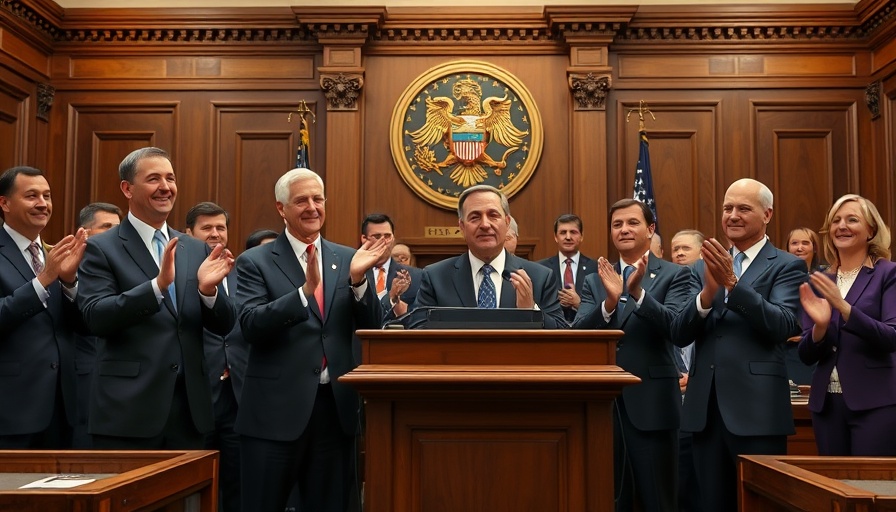
Budget Standoff in Florida: What’s Behind the Delay?
Florida lawmakers have hit a snag in their budget discussions, leading to House Speaker Daniel Perez's announcement that representatives should plan to remain home next week. With the budget deadline looming, this unexpected break highlights serious divisions over crucial financial policies within the halls of the state Capitol.
Understanding the Deadlock Over Tax Cuts
Central to the disagreement is a proposed tax cut package that has turned contentious. House Republican leaders are advocating for a permanent reduction in the state sales tax rate, a move they believe will alleviate financial burdens for families. However, Senate Republicans counter that such cuts would offer only negligible relief to constituents.
Adding complexity to the situation, Governor Ron DeSantis has expressed opposition to the sales tax reduction, suggesting instead a one-time $1,000 rebate for property owners with homestead exemptions. This proposal is seen as a precursor to a more significant political maneuver in 2026, where the governor is expected to pitch more radical reforms regarding property taxes.
The Implications of a Budget Delay
Florida, like many states, is constitutionally required to pass a budget by July 1. Should lawmakers fail to agree on a spending plan by then, it could lead to a government shutdown, sparking chaos in state operations. This urgency underscores the critical nature of the negotiations taking place behind closed doors.
The annual 60-day legislative session should have concluded on May 2, but because of unresolved issues, it has been extended until June 6. Each day that passes without a budget heightens tensions between the legislative chambers, as both sides appear more entrenched in their positions.
Political Ramifications of the Budget Quagmire
The ongoing standoff is likely to have significant ramifications not just within the legislative chambers but also across Florida’s political landscape. DeSantis, who has publicly criticized Perez's leadership, risks alienating a faction of Republicans while attempting to solidify support from other lawmakers who align more closely with Senate President Ben Albritton's views.
This discord raises questions about party unity and could influence upcoming elections, where budget management and tax policies typically play a pivotal role in voters' decision-making processes.
Pressure Mounts as Deadline Approaches
As lawmakers prepare for a brief hiatus, pressure is mounting to resolve these budget disputes. Both Perez and Albritton have committed to keeping lines of communication open, but their lack of clarity regarding progress is worrisome for many Floridians who depend on state services and support.
The larger narrative at play involves the balancing act of providing necessary services to citizens while also considering fiscal responsibility and taxpayer relief. With the June 6 extension coming close, observers are eager for tangible results that will bring this impasse to an end.
What’s Next for Florida Lawmakers?
Moving forward, it will be critical for Florida lawmakers to bridge their differences and establish a functional consensus. The legislature has historically been seen as a deliberative body capable of conflict resolution, and this instance will serve as a major test of their effectiveness. As both sides return to the negotiating table, it remains to be seen if they can garner the bipartisan support necessary to push a budget across the finish line.
This budget saga offers a significant insight into the current political climate within Florida, highlighting the complexities of governance and fiscal policy—issues that resonate deeply with voters across the state.
 Add Row
Add Row  Add
Add 
 Add Row
Add Row  Add Element
Add Element 



Write A Comment